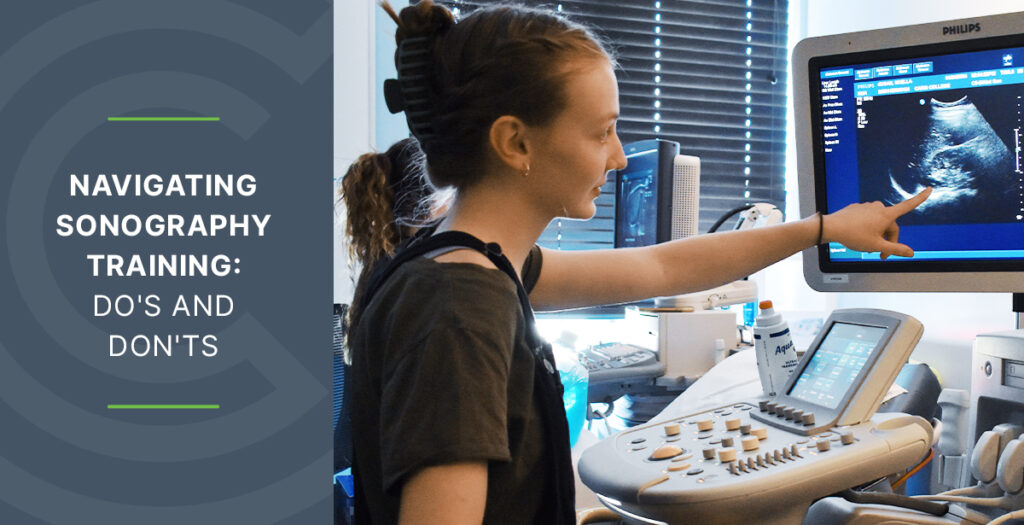
Navigating the Path to Becoming a Sonographer
Becoming a sonographer can open doors to a dynamic career in healthcare. It’s essential to understand the steps involved, the skills required, and the impact you can have on patient care. In this blog, we’ll begin navigating the path to becoming a sonographer, providing insights into the journey.
Understanding the Role: Unveiling the World of Medical Imaging
Before diving into the specifics of becoming a sonographer, it’s crucial to grasp the essence of the role. Sonographers specialize in medical imaging using ultrasound technology. They play a key role in capturing images of internal organs, tissues, and blood flow patterns, aiding in the diagnosis and monitoring of various medical conditions. As a sonographer, you become a visual storyteller, translating sound waves into detailed images that contribute to patient care.
Educational Requirements: Laying the Foundation for Expertise
The first step in your journey to becoming a sonographer is obtaining the necessary education. Most sonographers enter the field with an associate’s degree, while some pursue a bachelor’s degree for advanced career opportunities. Look for accredited programs that provide a comprehensive curriculum covering anatomy, physiology, medical ethics, and, of course, ultrasound technology. This foundational education sets the stage for your expertise in medical imaging.
Specialization Options: Tailoring Your Career Path
Sonography is a diverse field with various specialization options. Depending on your interests, you can choose to specialize in areas such as obstetrics and gynecology, cardiovascular, musculoskeletal, or abdominal sonography. Understanding your passion and choosing a specialization allows you to tailor your career path to align with your professional goals and make a significant impact in specific areas of healthcare.
Hands-On Training: Translating Knowledge into Practice
While classroom education provides a solid theoretical foundation, hands-on training is a crucial aspect of becoming a proficient sonographer. Many educational programs include clinical internships or externships, allowing you to apply your knowledge in real-world healthcare settings. This hands-on experience not only enhances your technical skills but also exposes you to patient care, communication, and collaboration within a healthcare team.
Developing Soft Skills: The Human Element of Sonography
Becoming a sonographer isn’t just about technical expertise; it’s also about developing essential soft skills. Effective communication, empathy, and attention to detail are vital in ensuring a positive patient experience. As a sonographer, you’ll often interact with patients during imaging procedures, explaining processes, and alleviating any concerns they may have. Cultivating these interpersonal skills is key to becoming a well-rounded and compassionate healthcare professional.
Certification: Validating Your Competence
After completing your education and hands-on training, the next step is obtaining professional certification. Most employers prefer or require certification from organizations like the American Registry for Diagnostic Medical Sonography (ARDMS) or the American Registry of Radiologic Technologists (ARRT). Certification not only validates your competence in the field but also enhances your employability and opens doors to a broader range of job opportunities.
Career Opportunities: Exploring Diverse Paths
Upon completing your education, training, and obtaining certification, the world of career opportunities as a sonographer awaits. Sonographers work in a variety of settings, including hospitals, clinics, imaging centers, and physician’s offices. The demand for skilled sonographers continues to grow, offering a stable and rewarding career path. Additionally, you can explore opportunities for career advancement, whether in leadership roles, education, or specialization in advanced areas of sonography.
Check out Caris College
As you consider becoming a sonographer, remember that the journey is both transformative and impactful. Navigating the path to becoming a sonographer involves a blend of education, hands-on experience, soft skill development, and a commitment to continuous learning. The role of a sonographer goes beyond capturing images; it’s about contributing to patient care, diagnosing medical conditions, and making a positive difference in healthcare.
Caris College offers General Sonography and Cardiac Sonography associate degree programs. With an on-campus clinical lab and experienced instructors with real-world experience to guide you, Caris College is helping students get the hands-on training and skills they need to launch healthcare careers in the world of ultrasound technology. Contact us now to learn more or schedule a campus tour today.
Become a sonographer